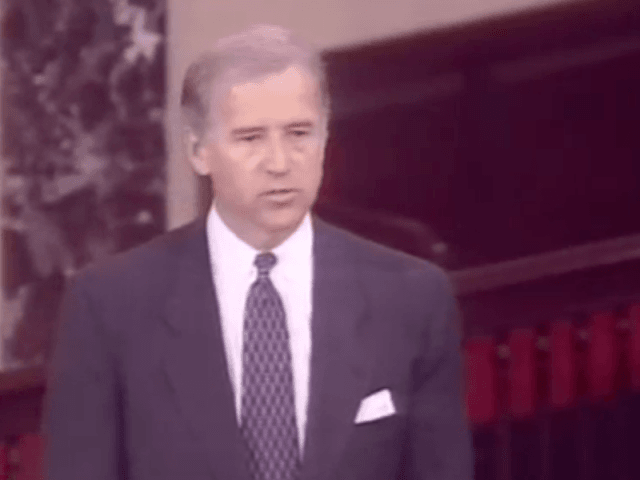WASHINGTON — President Barack Obama nominated Judge Merrick Garland to take Justice Antonin Scalia’s seat on the U.S. Supreme Court. But Republicans have already vowed that there will be no vote on his nomination through the end of 2016, with Senate Majority Leader Mitch McConnell (R-KY) citing the “Biden rule,” i.e. that nominations should not happen in a lame-duck, presidential election year.
Garland, 63, is a graduate of Harvard Law School, and is currently chief judge on the U.S. Court of Appeals for the District of Columbia Circuit, where he has served since 1997. (The position of chief judge is a seven-year position that goes to the longest-serving member of a court under the age of seventy.) He formerly was a law clerk to Justice William Brennan, perhaps the most liberal justice in the 227-year history of the Supreme Court.
I hope the President’s nomination of an exceptionally qualified nominee will convince Republicans to change course. #DoYourJob
— Senator Harry Reid (@SenatorReid) March 16, 2016
But Republicans have already said that there will be no action on any Supreme Court nominee until after the election. In a statement Wednesday morning, McConnell cited Biden’s now-infamous 1992 position against Supreme Court nominations in President George H.W. Bush’s final year in office, as well as similar positions taken by outgoing Minority Leader Harry Reid (D-NV) and his likely successor, Sen. Charles Schumer (D-NY).
.@SenateMajLdr McConnell comments on Supreme Court nomination here: https://t.co/LvNozLmMQf#SCOTUSnominee pic.twitter.com/Wmxp5O7YUn
— Sen. McConnell Press (@McConnellPress) March 16, 2016
Speaker of the House Paul Ryan (R-WI) also opposed confirming Garland, although the House does not vote on judicial appointments.
Under the #Constitution, the president has every right to make this nomination, and the Senate has every right not to confirm a nominee.
— Paul Ryan (@SpeakerRyan) March 16, 2016
The country’s stark political divisions are the primary reason cited for avoiding a nomination fight in 2016. Voters gave the White House to one political party in 2012, but gave the other party control of the Senate in 2014.
The two parties have radically different philosophies of what a Supreme Court justice should do. Republicans believe that the Constitution should be interpreted according to the original public meaning of its words, while Democrats believe that the Constitution is an “evolving” document that judges should be able to re-“interpret” according to modern political trends and beliefs.
This divide would dictate the fate of dozens of major issues, including free speech, abortion, religious liberty, gun rights, racial preferences, and government power. Republicans have thus concluded that the American people need to debate this issue through the year, and inform Washington, DC, of which way they want the Court to go through their votes in November, both for the White House and the Senate.
Consequently, Senate Judiciary Chairman Chuck Grassley has already vowed not to move forward on any nomination, and all Republican members of the committee informed Senate Majority Leader Mitch McConnell that they would not be holding any hearings or votes. McConnell applauded that position, and said the Senate will not vote on any nomination until the next president is sworn in.
Not only that, but Republicans argue that Obama is singularly unfit to demand a vote on his nominee, because as a senator he tried to filibuster the nomination of Justice Samuel Alito, attempting to forever deny a Senate vote on what everyone acknowledged was an extremely well-qualified Republican nominee.
Before Obama had even finished his speech nominating Garland, the Judicial Crisis Network (JCN) put out talking points of why voters should conclude that Garland must not be allowed to take Scalia’s seat. JCN put out a memorandum detailing what JCN calls Garland’s liberal positions on a number of major issues, including opposition to the Second Amendment, and granting vast powers to the Environmental Protection Agency (EPA).
The president’s insistence from the Rose Garden today that his nominee must be confirmed rapidly so he can help with the work of the Court’s current term cannot be reconciled with the calendar. The last argument of this year’s annual term will be April 27. The average length of a modern Supreme Court confirmation is 73 days, which would mean Garland would not be confirmed not until late May. No additional cases will be heard until October, just weeks before the presidential election.
Obama concluded his speech by saying that tomorrow Garland should start meeting with senators, but not a single senator from the majority party has indicated that he would be willing to meet with the nominee until after the election.
Instead, immediately after Obama’s speech, McConnell spoke on the Senate floor, quoting a 1992 speech from Joseph Biden, where then-Judiciary Committee Chairman Biden said the Senate should not hold Supreme Court confirmation hearings during a presidential election year.
This has now been labeled the Biden Rule. “It’s about a principle, not a person,” McConnell concluded, and said he would look forward to considering a nominee after the next president is sworn in on January 20, 2017.
Ken Klukowski is legal editor for Breitbart News. Follow him on Twitter @kenklukowski.

COMMENTS
Please let us know if you're having issues with commenting.